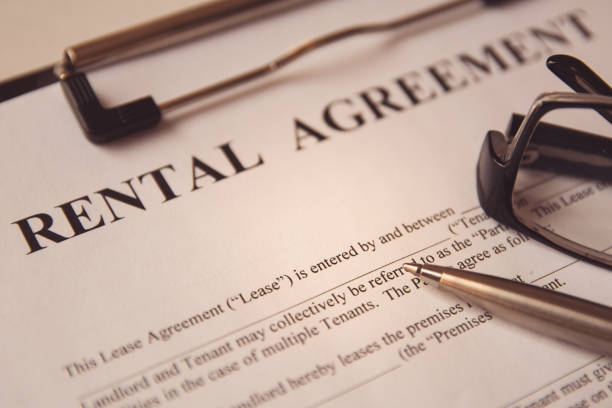We’re still waiting on the bill to pass through parliament, changes may be made, however we have the initial document that is currently being reviewed.
-
No-fault evictions are set to be banned in England after the long-awaited Renters’ Reform Bill was introduced to Parliament
-
The bill aims to make the private rented sector safer and fairer for renters
-
Renters will be able to challenge rent rises, and ask to have a pet, while landlords can no longer refuse to rent to people on benefits or with children
You can follow the progress of the renters bill as it goes through the approval here.
No-fault evictions are set to be banned in England after the long-awaited Renters’ Reform Bill was introduced to Parliament.
The bill contains a package of measures that aim to make the private rented sector safer and fairer for renters, as well as increasing the quality homes.
Other changes include giving renters a legal right to have a pet and ending blanket bans on renters who receive benefits or have children.
Renters will also be given two months’ notice of rent increases, and they can challenge rises that are above the market rate for their home, to stop landlords using excessive rent hikes to force people to leave.
The bill also includes measures that benefit landlords, including making it easier for them to recover their properties if they need to.
Housing Secretary Michael Gove said: “Too many renters are living in damp, unsafe, cold homes, powerless to put things right, and with the threat of sudden eviction hanging over them.
“This Government is determined to tackle these injustices by offering a New Deal to those living in the Private Rented Sector, one with quality, affordability, and fairness at its heart.”
What changes will renters see?
These are the main changes renters will see when the bill becomes law:
-
Section 21 ‘no fault’ evictions will be banned, meaning landlords cannot evict renters without a reason. The government hopes the change will enable renters to challenge bad landlords without the fear of losing their home.
-
Renters will have stronger protections against back-door evictions, and will be able to appeal excessive rent hikes which are designed to force them out of their home. They must be given two months’ notice of rent increases and if they think their new rent is above the market level, they can appeal to a tribunal.
-
Renters will have a legal right to request to have a pet in their home. Landlords must consider the request and cannot unreasonably refuse it, although they can require renters to take out pet insurance to cover any damage to their property.
-
The Decent Homes Standard, which currently applies to the social rented sector, will be applied to the private rented one for the first time. Landlords will have to ensure their properties meet minimum standards to ensure they are fit for occupation.
-
It will be illegal for landlords and agents to have blanket bans on renting to people receiving benefits or those with children.
-
All renters will be moved onto a single system of periodic tenancies.
-
Councils will have their enforcement powers strengthened and they will be required to report their enforcement activity in order to target criminal landlords.
-
A new Private Rented Sector Ombudsman will be set up to provide quicker and cheaper resolutions to disputes. All landlords will be required to join it. It will have the legal power to compel landlords to take remedial action and pay compensation.
-
A new digital Property Portal will be created to help landlords understand their obligations and show that they comply with them, and to help renters make informed decisions about their landlord.
The publication of the bill has been welcomed by consumer groups.
Dan Wilson Craw, acting director at Generation Rent, said: “The Renters’ Reform Bill is a huge opportunity to improve the lives of the 11 million people who now rent from private landlords in England.
“Arbitrary Section 21 evictions make it impossible for tenants to put down roots and report problems about their home with confidence. Abolishing them will take away much of the stress of renting and improve communication and trust between tenants and landlords.”
What does the Renters’ Reform Bill mean for landlords?
The bill contains measures to make it easier for landlords to recover their properties if they need to, including if they want to sell it, have a close family member move in or if tenants are ‘wilfully’ not paying rent. There have always been other notices for evictions that will continue to be available, whilst the Section 21 no fault notice which will be banned.
Notice periods for renters will also be reduced for renters if they have been irresponsible, such as breaching their tenancy agreement or damaging the property.
It will be made quicker and easier for landlords to evict anti-social tenants, including broadening the disruptive and harmful activities that can lead to an eviction, while more of the legal process to evict a tenant will be digitalised to reduce delays.
Landlords will still be able to increase rents to the market price for their property.
Ben Beadle, chief executive of the National Residential Landlords Association, said: “We welcome the Government’s pledge to ensure landlords can swiftly recover properties from anti-social tenants and those failing to pay their rent. Plans to digitise court hearings will also improve the speed at which legitimate possession cases are processed.”
Why is this happening?
Around 11 million people live in the private rented sector, but a quarter of homes do not meet basic decency standards, according to the government.
Meanwhile, research shows that more than a fifth of private renters who moved in 2019 and 2020 did not do so by choice.
The government hopes the new bill will redress the balance between landlords and tenants.
It also fulfils its manifesto commitment to ban no-fault evictions.
When will the Renters’ Reform Bill come into effect?
We anticipate the bill to pass through parliament in the coming months. You we will be monitoring the progress closely and any amendments that are made. Lets hope this brings about the positive effect desired to the UK rental market and that we do not see more landlords leave the private rental market pushing rents higher.



